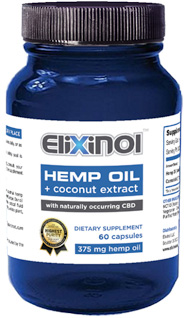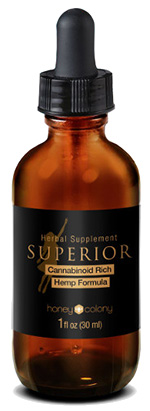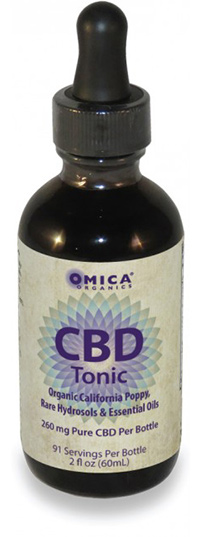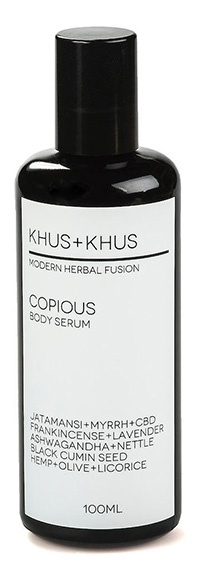The Miracle Molecule: Everything You Need to Know About the Health Benefits of CBD Oil
BY JUSTIN FAERMAN
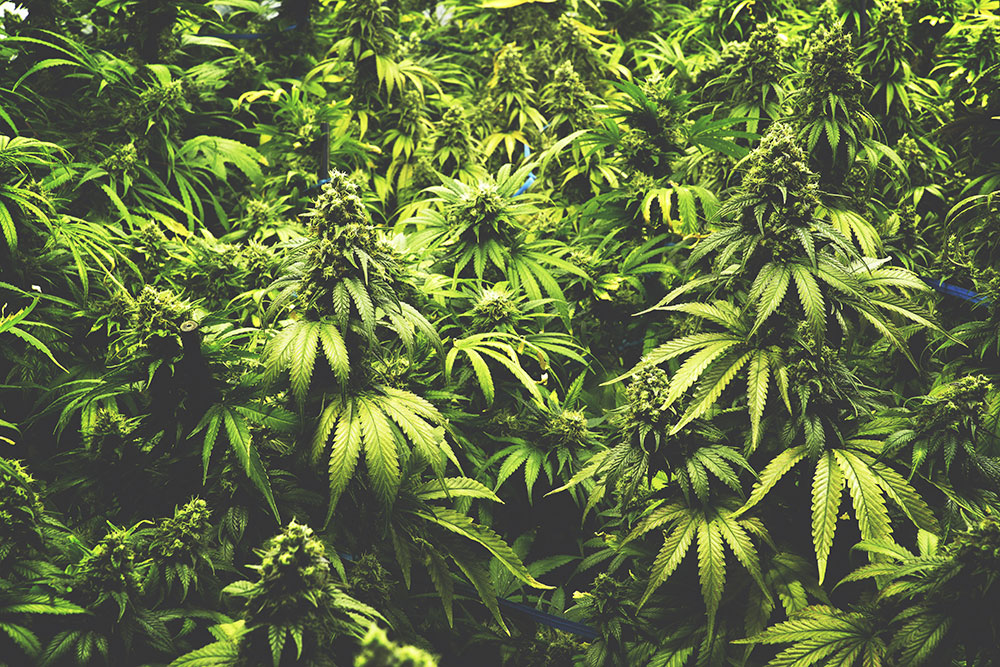 CBD, also known as cannabidiol, can be extracted from the hemp or cannabis plants. thousands of studies conducted over the last few decades are showing that CBD may have a wide range of therapeutic benefits, although more research is needed.
CBD, also known as cannabidiol, can be extracted from the hemp or cannabis plants. thousands of studies conducted over the last few decades are showing that CBD may have a wide range of therapeutic benefits, although more research is needed.
It’s hard to turn on the news these days without hearing reports of cannabis and hemp being legalized around the globe—and with good reason: these two plants have been important to humankind as medicines, food, fuel, fiber and more for thousands of years. They’re incredibly safe, grow wildly and abundantly in most climates, and have an extraordinary list of practical uses. It’s almost as if Mother Nature created them just for us.
And, in fact, that’s not a terribly far-fetched idea. The human body actually contains special receptors throughout the nervous system that are specifically activated by compounds found primarily in the cannabis and hemp plants. Like, for example, CBD (Cannabidiol), a borderline-miraculous compound that is currently being heavily researched around the world and is showing promising signs as a potential treatment for many serious diseases in both animal and human models, as well as an overall health protectant and booster. Although it’s too early to make any definitive health claims as to what CBD can or can’t do, the research around the compound is offering a glimpse into potential therapeutic uses, some of which we’ll explore below, and anecdotal reports from large numbers of people worldwide show that indeed there is something special about CBD oil.
According to Nora Volkow, the director of the National Institute on Drug Abuse, “Rigorous clinical studies are still needed to evaluate the clinical potential of CBD for specific conditions. However, pre-clinical research (including both cell culture and animal models) has shown CBD to have a range of effects that may be therapeutically useful, including anti-seizure, antioxidant, neuroprotective, anti-inflammatory, analgesic, anti-tumor, anti-psychotic, and anti-anxiety properties.” [1]
Clearly Cannabidiol has a lot going for it. The road ahead will include double-blind human clinical trials to confirm or deny these early findings that certainly seem very promising. However, in the meantime, that has not stopped health-seekers worldwide from consuming CBD in hopes that they might benefit from its supposed effects—and many are reporting positive experiences in line with what the researchers are finding.
THC vs. CBD: Getting High vs. Getting Healthy
Scientists have known about CBD for some time, over 60 years to be exact, but have generally ignored it in favor of its much sexier and spectacular cousin, THC, which is the main active ingredient in marijuana (cannabis) responsible for the “high” people experience when smoking it. However, as research into the plant advanced in the 1970s, scientists began to study CBD’s benefits more closely and realized that it was just as important as THC, if not more so in many ways. And furthermore, CBD was non-psychoactive, meaning that it doesn’t get you high.
For that reason, CBD oil is legal in all 50 U.S. states and in most places around the world (as long as the cbd oil is extracted from the hemp plant and not marijuana). A good way to think about it is THC gets you high and CBD doesn’t. The two are related but entirely different compounds existing in both the cannabis (marijuana) and hemp plants. They both work independently of each other and synergistically together to produce healing and health in the mind and body, however, CBD oil just makes you feel good—without any kind of intoxicating high.
Note: THC is only present in significant quantities in marijuana—also known as cannabis. The hemp plant, which is in the same genus as marijuana, but is an entirely different plant, only contains trace amounts of THC. So little, in fact, that hemp products are entirely legal all over the U.S. and in most parts of the world. Hemp also contains small amounts of Cannabidiol that can be increased by special breeding practices, through concentrating the CBD naturally found in hemp oil and using traditional plant-extraction techniques.
How CBD Works in The Body
Unlike THC, CBD is unique in that it has a wide range of effects on many of the body’s most important systems that are responsible for regulating our health. CBD has an affinity for activating serotonin receptors (specifically 5-HT1A), which control anxiety, calmness and mood; vanilloid receptors, which control and modulate how we experience pain; adenosine receptors, which control the quality and depth of our sleep; and indirectly influences endocannabinoid receptors, which control memory, energy levels, stress levels, pain tolerance, body temperature and appetite, among many others things.
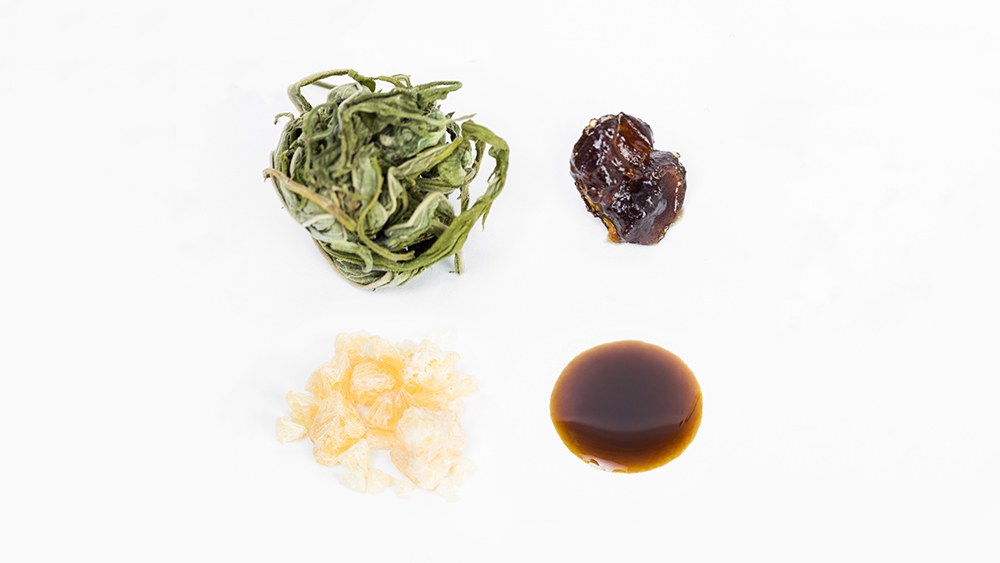 counter clockwise from top left: CBD rich cannabis bud, THC crystals, CBD rich hemp oil, CBD extract resin. Cannabidiol itself is non-psychoactive although it can be extracted from the cannabis (marijuana plant). commercially available, legal CBD products, however, are typically extracted from hemp oil.
counter clockwise from top left: CBD rich cannabis bud, THC crystals, CBD rich hemp oil, CBD extract resin. Cannabidiol itself is non-psychoactive although it can be extracted from the cannabis (marijuana plant). commercially available, legal CBD products, however, are typically extracted from hemp oil.
Researchers have also found in experimental animal and human cell culture models (meaning that they are exposing human and animal cells to various concentrations of CBD in petri dishes and test tubes in the lab) that CBD has anti-tumor effects on glioma and breast carcinomas and results in increased cancer cell death in certain types of cancers. [2-4] As it currently stands, it’s a big leap from the test tube to the human body, and no definitive claims can be made in this regard, nonetheless many in the scientific community are watching these developments very closely.
As such, it continues to be studied closely as a potential ‘wonder drug’ by both nutraceutical and pharmaceutical companies worldwide. Everyday it seems like a new study is being released confirming or singing the praises of a new range of benefits from CBD, which is being hailed in many scientific circles as one of the most remarkable new medicines discovered in decades.
The Health Benefits of CBD: What The Research is Showing
So just what is so great about CBD oil’s benefits that is causing so much interest and research in both the scientific and medical communities? To understand that properly, it’s important to understand how CBD works in the body and mind.
1. Neuroprotective and Antioxidant Effects
Of all CBD’s reported effects one of its most novel and interesting is neuroprotection, which is believed to stem from its ability to act as a powerful antioxidant in the brain. Neuroprotection loosely refers to the ability of Cannabidiol—as shown in a number of animal studies—to a) prevent, mitigate, reverse or interrupt many of the processes that lead to the breakdown of neurons in the brain and nervous system believed to cause many common diseases like Parkinson’s, Alzheimer’s, MS, strokes and more, and b) reduce inflammation in the brain, which is believed by many doctors to interfere with brain function and play a role in mystery illnesses like chronic fatigue and brain fog. [5-11] Although neuroprotective effects have currently only been demonstrated in animal models and cell cultures, there is hope that CBD may exert similar effects in humans, though further research is needed.
2. Anti-Anxiety & Mood Enhancement
One of the most noticeable effects that many people report after taking CBD oil is a pleasant and powerful reduction in anxiety and a noticeable lift in mood. Many describe feeling a wave of calm and bliss washing over their bodies, which is consistent with CBD’s reported effects at 5-HT receptors that control the release of many important neurotransmitters that affect stress/anxiety levels and mood, particularly serotonin.
One study of CBD extract on anxiety used functional magnetic resonance imaging (fMRI), which is a sophisticated brain activity mapping tool, to study what happened to the brain when participants took 600mg of CBD extract while being exposed to stress- and anxiety-inducing stimuli. What they found was that CBD calmed the amygdala and cingulate cortex, two important areas of the brain well-known to control fear, stress levels and anxiety, among other things. [12]In another study, Brazilian researchers investigated the effect of CBD extract on human cortisol levels in eleven volunteers. They found that CBD decreased cortisol levels significantly more than the placebo and that most subjects also reported a sedative effect from the treatment. [14]
In a meta-aalysis of CBD’s effects on anxiety conducted in Brazil, researchers found that “studies using animal models of anxiety and involving healthy [human] volunteers clearly suggest an anxiolytic-like effect of CBD. Moreover, Cannabidiol extract was shown to reduce anxiety in [human] patients with social anxiety disorder.” [13] For this reason, CBD is also being investigated as a natural antidepressant, anti-psychotic, and an alternative to SSRI medications (Prozac, etc.).
3. Anti-Inflammatory & Pain Reduction
Multiple animal studies have shown that CBD has a remarkable ability to suppress certain cellular processes that lead to inflammation and, as a result, pain. [5-7,15-17] Researchers are currently conducting studies to see just how much this effect transfers over to humans, but there have been a number of clinical trials in Europe on a product called Sativex, which is a 1:1 blend of CBD and THC. These studies found that Sativex was able to reduce pain associated with central and peripheral neuropathy, rheumatoid arthritis, and cancer to varying degrees in most of the study participants. [18-19] It is unclear how much of an effect Cannabidiol has on pain reduction in these cases, however, the animal studies suggest that CBD is likely involved to some degree based on its known effects on cellular processes.
Although the jury is still out as to how effective CBD oils and extracts are for inflammation, many who have been struggling with inflammation-related diseases like arthritis have reported that CBD oils, extracts and creams containing CBD have helped reduce some of their symptoms.
4. Nausea, Diabetes, Epilepsy and More
Although not as common, studies on animals and a few, small human studies (in the case of epilepsy) also found that Cannabidiol shows promise as a potential treatment for seizures, diabetes and nausea, among other things, although more research is needed. [20-25] Three of the four human studies done using CBD as a treatment for epilepsy showed positive results, however, due to design flaws and lack of rigor, most researchers are suggesting that the currently available information is insufficient to draw firm conclusions regarding the efficacy of CBD as a treatment for seizures. [26] Studies are currently underway to get better data based on initial promising results in animal trials.
5. Psychospiritual Effects
While the psychospiritual effects of cannabis (marijuana) are legendary, CBD is a newer, less widely used compound, and so its effects and benefits in this area aren’t totally understood yet. With that being said, as mentioned previously, many feel a marked sedation and even feelings of bliss or profound relaxation after ingesting high-quality CBD oils and extracts. As such, CBD oil is often used by meditators to “go deeper, faster” as it can help with some of the mental chatter that often surfaces during practice. Others report that the dramatic, positive shift in mindset that CBD oil can produce is useful in seeing life from a different perspective that often times lends itself to new insights, ideas, and closure about things that previously bothered them.
Quality & Potency
More so than other herbs and plants, quality can be an issue with certain CBD products, so it’s important to seek out brands with a high degree of integrity that clearly disclose their sourcing practices and quality standards. Seek products that are completely organic or at least contain organic CBD as these are guaranteed to be free of harmful chemicals and solvents that are sometimes used in the extraction process of less-reputable companies just out to make a buck.
All widely available, legal CBD products are extracted from the hemp plant, and particularly hemp oil, whereas products that are legal in some places but illegal in others (depending on local jurisdiction) are often extracted from cannabis (marijuana) plants and contain significant and varying levels of THC. There is some evidence that small amounts of THC increase the effectiveness of CBD, however, it is not required to reap the benefits of taking Cannabidiol. Research has shown pure CBD extracts from hemp and hemp oil, as long as the CBD is of high quality, are similarly effective and beneficial. However, in more serious, chronic illnesses there may be additional benefits from having THC in the mixture, such as more pronounced pain reduction and medicinal effects, according to the various human studies conducted on the compound. [27-28]
It is also important to consider potency when choosing CBD products as well. Generally speaking, the effects of CBD are dose dependent to some degree, meaning that the more that is ingested, the more pronounced its effects are. As such, it’s important to seek out more concentrated and/or highly absorbable products for maximum effect. There are a wide range of Cannabidiol product potencies available, but a good starting point for most people is for one dose of the product to be in the 2mg to 7mg range, with the latter being on the stronger side. If you know you tend to be sensitive to natural products and medicines, start at a lower dose. If you don’t tend to feel anything or know you need a stronger product to notice the benefits of CBD, feel free to start with higher dosages. For most CBD hemp oil products, you can take a partial or double dose to adjust the potency.
CBD oil is remarkably safe and has shown itself to be relatively side-effect free so there’s nothing to worry about unless you have a known allergy to hemp or you are on some type of medication or medical supervision. When in doubt consult a qualified naturopath or doctor. As always, when starting new herbs or natural medicines like Cannabidiol, be sure to start slow to understand how your body reacts and work up to higher dosages over time.
Recommended CBD Products
Organic High Potency CBD Capsules
Elixinol
Elixinol offers a highly concentrated, high-potency, organic whole-hemp plant CBD oil , which is naturally extracted with carbon dioxide and free of all synthetics and chemicals. Whole-hemp plant extracts contain synergistic compounds that are believed to enhance the effectiveness and benefits of CBD.
Superior Organic High Potency CBD Oil
Honey Colony
Honey Colony offers a high-potency, 99% bioavailable CBD oil blended with special Chinese herbs designed to synergistically increase the medicinal, nervous system relaxing, inflammation soothing and health-boosting properties of CBD. If you are looking for a powerfully therapeutic effect that gets you the greatest bang for you buck, this is the CBD hemp oil for you.
Organic CBD Hemp Oil Complex
Omica Organics
Omica Organics offers a revolutionary fully emulsified, full-spectrum CBD complex bonded with pure, certified organic whole-hemp oil, infused into an ancient all-natural Ayurvedic formula of biodynamic hydrosols and herbs for maximum absorption and Cannabidiol bioavailability.
Organic CBD Herbal Body Oil
Khus+Khus
Khus+Khus offers a sensual CBD and hemp oil-infused body serum that is a blend of ancient, powerfully healing Ayurvedic and western herbs like jatamansi, ashwagandha, frankincense, and black cumin seed oil, all of which are organic and of the highest purity and quality.
Recommended Product Disclaimer
The products recommended in this article may have different formulations than the products used in the studies and research cited in this article. As such, they may have different effects than have been reported by these studies. No claim is made or implied whatsoever as to the effects of any recommended products or their effects on health. The statements made in this article have not been evaluated by the FDA. Any products recommended are not intended to diagnose, treat, or cure any disease.
References
[1] Volkow, Nora D. “Cannabidiol: Barriers to Research and Potential Medical Benefits.” Drug Caucus Hearing on Barriers to Cannabidiol Research, United States Senate Caucus on International Narcotics Control. June 24, 2015 Retrieved from
https://www.drugabuse.gov/about-nida/legislative-activities/testimony-to-congress/2016/biology-potential-therapeutic-effects-cannabidiol
[2] Ligresti et al. “Antitumor activity of plant cannabinoids with emphasis on the effect of cannabidiol on human breast carcinoma.” J Pharmacol Exp Ther 318.3 (2006): 1375-1387.
[3] Massi et al. “Antitumor effects of cannabidiol, a nonpsychoactive cannabinoid, on human glioma cell lines.” J Pharmacol Exp Ther 308.3 (2004): 838-845.
[4] McAllister et al. “The Antitumor Activity of Plant-Derived Non-Psychoactive Cannabinoids.” J Neuroimmune Pharmacol 10.2 (2015): 255-267.
[5] Esposito et al. “The marijuana component cannabidiol inhibits beta-amyloid-induced tau protein hyperphosphorylation through Wnt/beta-catenin pathway rescue in PC12 cells.” J Mol Med (Berl) 84.3 (2006): 253-258.
[6] Martín-Moreno et al. “Cannabidiol and other cannabinoids reduce microglial activation in vitro and in vivo: relevance to Alzheimer’s disease.” Mol Pharmacol 79.6 (2011): 964-973.
[7] Iuvone et al. “Neuroprotective effect of cannabidiol, a non-psychoactive component from Cannabis sativa, on beta-amyloid-induced toxicity in PC12 cells.” J Neurochem 89.1 (2004): 134-141.
[8] Pazos et al. “Mechanisms of cannabidiol neuroprotection in hypoxic-ischemic newborn pigs: role of 5-HT1A and CB2 receptors.” Neuropharmacology 71 (2013): 282-291.
[9] Hampson et al. “Cannabidiol and (-)Delta9-tetrahydrocannabinol are neuroprotective antioxidants.” Proc Natl Acad Sci USA 95.14 (1998): 8268-8273.
[10] Pryce et al. “Neuroprotection in Experimental Autoimmune Encephalomyelitis and Progressive Multiple Sclerosis by Cannabis-Based Cannabinoids.” J Neuroimmune Pharmacol 10.2 (2015): 281-292.
[11] García-Arencibia et al. “Evaluation of the neuroprotective effect of cannabinoids in a rat model of Parkinson’s disease: importance of antioxidant and cannabinoid receptor-independent properties.” Brain Res 1134.1 (2007): 162-170.
[12] Fusar-Poli et al. “Distinct effects of delta-9-tetrahydrocannabinol and cannabidiol on neural activation during emotional processing.” Arch Gen Psychiatry 66.1 (2009): 95-105.
[13] Schier et al. “Cannabidiol, a Cannabis sativa constituent, as an anxiolytic drug.” Rev Bras Psiquiatr, 34.1 (2012): 104-110.
[14] Zuardi et al. “Effect of cannabidiol on plasma prolactin, growth hormone, and cortisol in human volunteers.” Braz J of Med and Biol Res 26.2 (1993): 213–217.
[15] Malfait et al. “The nonpsychoactive cannabis constituent cannabidiol is an oral anti-arthritic therapeutic in murine collagen-induced arthritis.” Proc Natl Acad Sci USA 97.17 (2000): 9561-9566.
[16] Costa et al. “Oral anti-inflammatory activity of cannabidiol, a nonpsychoactive constituent of cannabis, in acute carrageenan-induced inflammation in the rat paw.” Naunyn Schmiedebergs Arch Pharmacol 369.3 (2004): 294-299.
[17] Costa et al. “The nonpsychoactive cannabis constituent cannabidiol is an orally effective therapeutic agent in rat chronic inflammatory and neuropathic pain.” Eur J Pharmacol. 556.1-3 (2006): 75-83.
[18] Di Marzo, Vincenzo and Diego Centonze. ‘Placebo effects in a multiple sclerosis spasticity enriched clinical trial with the oromucosal cannabinoid spray (THC/CBD): dimension and possible causes.” CNS Neurosci Ther. 21.3 (2015): 215-21.
[19] Flachenecker et al. “Nabiximols (THC/CBD oromucosal spray, Sativex®) in clinical practice–results of a multicenter, non-interventional study (MOVE 2) in patients with multiple sclerosis spasticity.” Eur Neurol. 71.5-6 (2014): 271-279.
[20] Porter, Brenda E. and Catherine Jacobson “Report of a parent survey of cannabidiol-enriched cannabis use in pediatric treatment-resistant epilepsy.” Epilepsy & Behavior 29 (2013) 574–577.
[21] Cunha et al. “Chronic administration of cannabidiol to healthy volunteers and epileptic patients.” Pharmacology 21.3 (1980): 175-185.
[22] Parker et al. “Cannabidiol, a nonpsychoactive component of cannabis and its synthetic dimethylheptyl homolog suppress nausea in an experimental model with rats.” Neuroreport. 13.5 (2002): 567-570.
[23] Weiss et al. “Cannabidiol lowers incidence of diabetes in non-obese diabetic mice.” Autoimmunity. 39.2 (2006): 143-151.
[24] Rajesh et al. “Cannabidiol attenuates high glucoseinduced endothelial cell inflammatory response and barrier disruption.” Am J Physiol Heart Circ. Physiol. 293.1 (2007): H610-H619.
[25] Porter, Brenda E. and Catherine Jacobson. “Report of a parent survey of cannabidiol-enriched cannabis use in pediatric treatment-resistant epilepsy.” Epilepsy & Behavior 29.3 (2013): 574–577.
[26] Lee, Martin A. “CBD Misconceptions.” Project CBD. February 18, 2015. Accessed October 28, 2016. https://www.projectcbd.org/article/cbd-misconceptions.
[27] Russo, Ethan B. “Taming THC: potential cannabis synergy and phytocannabinoid-terpenoid entourage effects.” Br J Pharmacol. 163.7 (2011): 1344-1364.
About The Author
Justin Faerman has been studying and writing about holistic health practices, herbalism and natural medicine for over 14 years and is a leading authority on both modern and ancient therapies for creating lasting health and wellness. He has a degree in Environmental Science from the University of California, Santa Barbara and has conducted field research into organic and regenerative agriculture practices and eco-social sustainability during his time there. He is also the Founder of Lotus Superfoods, a boutique purveyor of rare herbs and superfoods as well as the Co-founder of Conscious Lifestyle Magazine and the Flow Consciousness Institute. Learn more about his work at flowconsciousnessinstitute.com and lotussuperfoods.com






